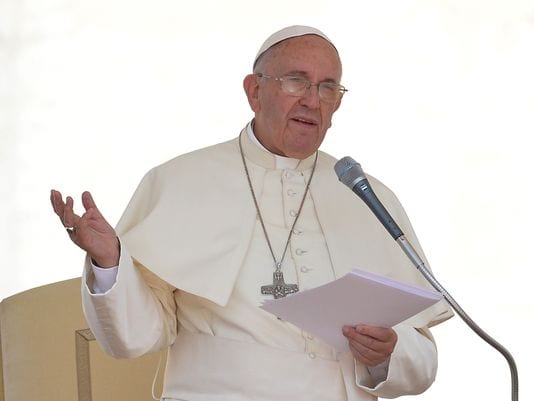
In his mid-June encyclical, Pope Francis placed the blame for climate change squarely on the shoulders of humanity and lamented their “widespread indifference” to the tragic impact of environmental degradation and its continued effect on vulnerable populations around the globe.
Research and programs at Loyola Marymount University are currently addressing how the changing climate impacts the impoverished, including a collaborative new endeavor to develop tools for cities to increase their resilience in the face of environmental decline.
“It is encouraging to see that Pope Francis – who has a degree in chemistry – is crossing the historical divide between religion and science,” said Jeremy Pal, Ph.D., a Loyola Marymount University professor of civil engineering and environmental science. Pal was among the contributing authors on the Intergovernmental Panel on Climate Changes (IPCC), an international collaboration of scientists that shared the 2007 Nobel Peace Prize with Al Gore.
“The Pope recognizes that the impacts of climate change will likely fall disproportionately on some of the poorest populations of the world,” Pal continued. “These same populations have the smallest per capita greenhouse gas footprints and the lowest capacity to adapt to the consequences of climate change.”
Much of Pal’s research aims to identify areas that are vulnerable to climate change, including two National Science Foundation-sponsored projects that investigate the impacts of climate and land cover change in fragile West Africa. Much more needs to be done, however, Pal said.
Another LMU effort with which Pal is affiliated is the Mediterranean City Climate Change Consortium (MC-4), which is housed at LMU’s Center for Urban Resilience.
“MC-4 brings together a network of professionals to advance work being done in cities within the same Mediterranean climate zone and helps people improve the intertwined social, ecological and economic systems in their own communities,” said MC-4 Director Laurel Hunt. “We want to ensure that the most vulnerable populations are at the forefront of efforts to develop solutions to climate change.”

Because of their involvement with MC-4, Hunt and Pal were recently invited to Panama to participate in the first United Nations Global Adaptation Network Forum, which brought together more than 100 professionals from research institutions, academia, political bodies and non-governmental organizations to share ideas on addressing climate change.
Pal was encouraged to see so many non-industrialized nations concerned about climate change, yet worries that “little is being done at a global scale to reduce anthropogenic greenhouse gas emissions, largely due to inaction by the United States and China who are the world’s two largest emitters.”
While individuals can certainly do their part to reduce their own greenhouse gas emissions, Pal noted that sweeping change must come at the policy level.
That’s an area where MC-4—with its focus on climate change at the city level and ability to bring together a global network of practitioners, policymakers, business leaders and academics —could exert influence.
“MC-4 is a hub for turning ideas into action,” Hunt said. She is seeking to solidify MC-4’s base at LMU, creating opportunities for faculty and students while helping the local communities benefit from strategies and resources that address climate change as well as social and economic equality. (Get in touch with her at laurel.hunt@lmu.edu if you’re interested.)
Programs such as MC-4, with its eye towards action, can’t come soon enough. Pal believes passionately that efforts to reduce emissions must continue and “LMU, as a Jesuit university, should be taking the lead.”



